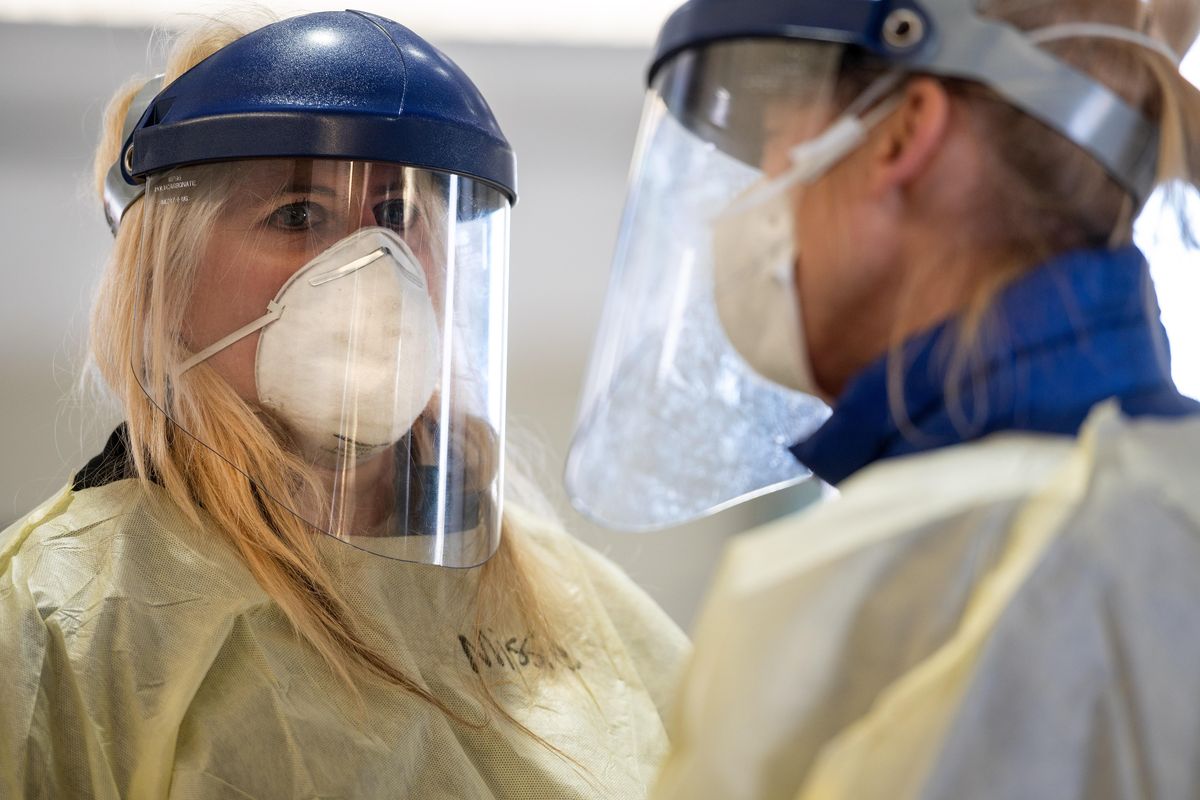Local effort to trace, quarantine those who come into contact with COVID-19-positive people ramps up

If you spend more than 10 minutes less than 6 feet away from someone who tests positive for the coronavirus, a team of contact tracers could be calling you soon – and asking you to quarantine.
While Spokane County hasn’t yet moved out of the first phase of Gov. Jay Inslee’s reopening plan, contact tracing is a key component of doing so and work is well underway to expand local efforts.
Contact tracing involves tracking down and quarantining the close contacts of those who test positive for COVID-19, and it will play a major part in the effort to contain the virus as restrictions loosen and more people interact.
In Spokane County, health district employees and other local public health officials are being enlisted to do some contact-tracing work, while medical and nursing school students will be trained in the coming weeks to serve as contact-tracing volunteers.
These efforts will become increasingly important as more businesses begin to open in Inslee’s phased Safe Start reopening plan.
Spokane County is in Phase 1 of the reopening plan, as is the rest of the state, except for eight rural counties that have been given the go-ahead to move to Phase 2.
During Phase 2, residents are allowed to gather in groups of up to five people outside their households and looser restrictions are in place on nonessential businesses. Restaurants and bars can reopen with limited seating, people can shop in stores with restrictions, and workers can return to office-based businesses, among other changes.
Cases are expected to rise with more people out and about. To keep the virus contained, people who get the virus and their close contacts will have to quarantine.
When a case of COVID-19 is reported to the Spokane Regional Health District, an epidemiologist or health district employee calls the infected person and advises about how long to quarantine and sanitizing the person’s environment. They then will work to trace the people with whom the infected person might have had contact during the illness.
That work is complicated because a person with COVID-19 is contagious for two days before they begin feeling symptoms, said Anna Halloran, an epidemiologist at SRHD.
A “close contact” is defined as anyone who spends more than 10 minutes within 6 feet of a person who has the virus. An epidemiologist will work to create a list of contacts that a person with COVID-19 came in touch with at home, at work or elsewhere.
All contacts of that confirmed case will be asked to quarantine for two weeks and monitor their symptoms. They will also be given advice about how to get tested.
The health district can enlist the help of volunteers to call close contacts of cases, except in cases of possible outbreaks in group settings or high-risk scenarios.
Because the whole contact-tracing process is confidential, close contacts will not be told who the person with COVID-19 is when they get the call from a health district employee or volunteer.
“The information is confidential. If you’re infected, your family will know that. But beyond that, we are not sharing that information with anyone else,” Spokane County Health Officer Dr. Bob Lutz said.
Eastern Washington University will have about 20 volunteers trained by June and up to 50 by mid-July, said Dr. Pam Kohlmeier, public health professor at EWU. Students from the Washington State University and University of Washington medical schools as well as students in public health and nursing programs in the area can volunteer, since they have the working knowledge of medical terms to make the training effective.
“We are open to sharing this with other hospitals, health systems and health districts if they want,” Kohlmeier said of the training program.
Halloran said health district staff coordinates with the Panhandle Health District in Idaho when a contact investigation crosses state lines. A person’s county of residence is where the official contact investigation will begin, but if it crosses state lines, the two health districts will work together.
The contact-tracing strategy relies on people making the choice to follow public health recommendations to stay quarantined if they have or came into contact with a confirmed COVID-19 case.
While there will be no guards posted at a person’s door or GPS to ensure people stay put, public health orders are enforceable by law, by the health officer.
Lutz, however, hopes it doesn’t come to that.
“I hope people have concerns and considerations about other community members, that they will do the right thing and self-isolate and quarantine,” Lutz said.